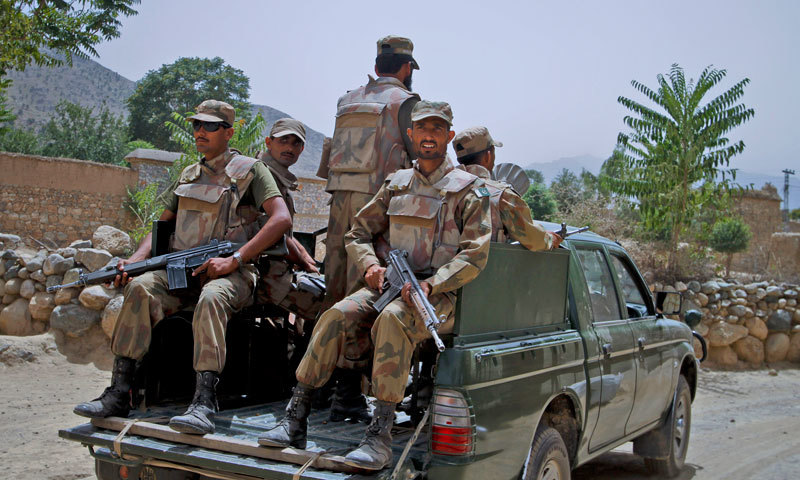ISLAMABAD: The year 2018 saw a remarkable reduction of 45pc in militant attacks in Pakistan.
A study conducted by Pakistan Institute for Conflict and Security Studies showed that the security situation significantly improved in the year as the number of attacks, resultant deaths as well as injuries declined by 45pc, 37pc and 49pc, respectively, compared to 2017. The number of suicide attacks also declined.
According to a press release, militants carried out 229 attacks in different provinces in which 577 people were killed - 356 civilians, 152 security forces personnel and 67 militants. Besides, 959 people were injured, including 693 civilians and 261 security personnel. But the ratio of security forces’ casualties per attack significantly increased in 2018 compared to 2017.
A consistent decline in militant attacks was noticed since the launch of Operation Zarb-i-Azb in June 2014. The average militant attacks per month declined from 35 in 2017 to 19 in 2018. In 2014, it was 134 which dropped to 59 in 2015 and 42 in 2016.
Average militant attacks per month decreased from 35 in 2017 to 19 in 2018, report says
Balochistan remained the most troubled province where the highest number of militant attacks (99), highest number of deaths (354) and highest number of injured (570) were recorded.
Of the total attacks in the country, 61pc of the deaths and 59pc of the injuries took place in Balochistan.
The second highest number of attacks (65) was recorded in the erstwhile Fata in which 107 people were killed and 150 injured.
In Khyber Pakhtunkhwa, 40 attacks were recorded in which 72 people were killed and 174 injured. As many as 14 attacks were reported from Sindh in which 21 people were killed and 20 injured.
Punjab saw six militant attacks in which 18 people were killed and 42 injured. More footprints of the militants were observed in Gilgit-Baltistan than the previous years as four militant attacks were recorded in the area during the year in which five people were killed and three injured. At least 12 schools, mostly of girls, were destroyed in a single night in the Diamer district.
In 2017, 23 suicide attacks had been recorded in the country. However, the number declined to 18 in 2018 in which 267 people were killed and 460 injured.
The deadliest suicide attack targeted Nawab Siraj Raisani, a popular Baloch politician during his election rally in July. ANP leader Haroon Bilour also lost his life in a suicide attack.
July was the deadliest month of the year in which 228 people were killed and 423 injured. Around 40pc of the total deaths took place in July which was the month of general elections.
The election campaign in 2013 was also targeted by militants who considered democracy a non-Islamic system.
Meanwhile, a report by Centre for Research and Security Studies also said Pakistan saw an overall decline in the number of casualties from violence-related incidents in 2018, continuing the trend from 2015.
Balochistan had the most number of fatalities at 407 followed by Fata (208) and Sindh (192). Of the 2,333 casualties in 2018, as many as 1,131 were fatalities, down 45pc from 2,047 the previous year.
The biggest decline was observed in Punjab where fatalities dropped by nearly 69pc (469 to 146) followed by Sindh (57.8pc) and Fata (52.3pc).
Published in Dawn, January 1st, 2019













































